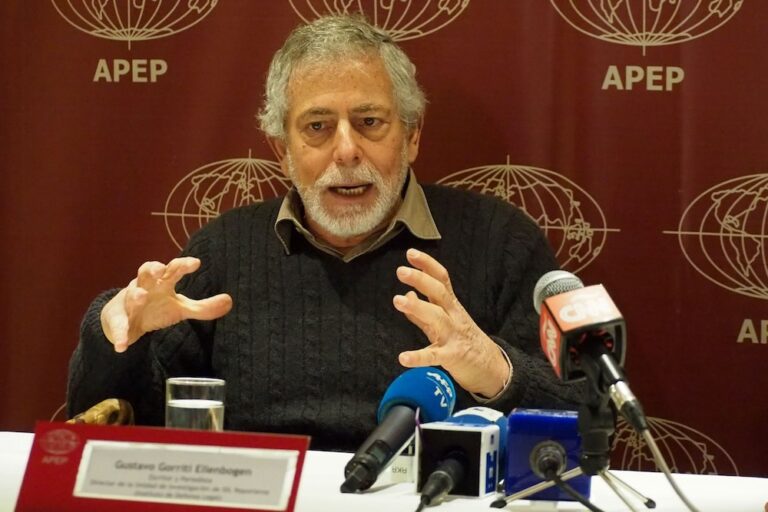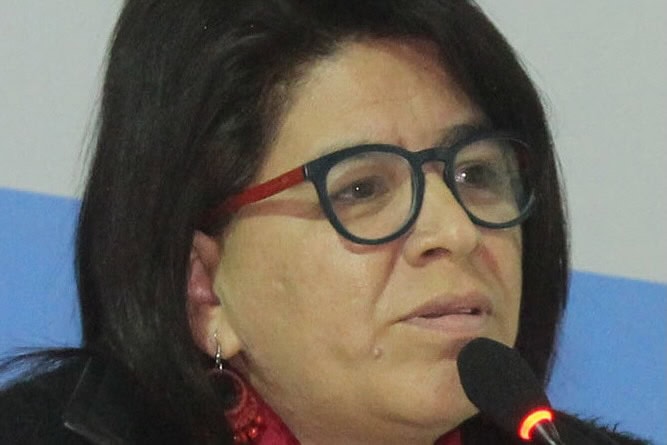Reporters have been repeatedly assaulted while attempting to cover events associated with one of the most important general strikes in Peru's recent history.
(IPYS/IFEX) – On 25 November 2011, Luis Mego, a correspondent for América Televisión, Orlando Rucana, a presenter for La Exitosa radio station, and Luis Armando Chilón, a reporter for Sol TV, were assaulted during the second day of a strike that is being carried out to protest against the Conga mining project. The work stoppage was observed by most of the population of the city of Cajamarca, in the region of the same name, in northern Peru.
Mego was attempting to cover the occupation of a highway where members of the Environmental Defence Front had called a press conference, but he was pushed away, accused of not “sticking to the truth.” Bottles and other objects were also thrown at him. Fortunately, a group of people came to his rescue and prevented the assault from continuing.
Rucana was assaulted while he was covering a demonstration outside the Cajamarca Police Station, where a man accused of causing a public disturbance had been detained. A group of demonstrators surrounded the journalist and asked for his identification. After showing them his press card, however, the protesters called Rucana an “infiltrator”, then struck him on the legs and prevented him from covering what was going on.
Chilón, meanwhile, was threatened by six unidentified men in order to make him stop filming them. The journalist told IPYS that the men threatened to beat him when they realised he was videotaping them as they prevented cars from circulating on a blocked highway. The journalist, who was alone, complied with their demands.
On 26 November, the http://www.lanuevaprensa.pe web page and the Channel 33 Imagen TV station, based in the cities of Cajamarca and Celendín respectively, were targeted on the third day of the strike.
The web page, directed by journalist Juan Zapata, was hacked into and a logo for Anonymous Iberoamérica appeared on the site for more than two hours, instead of the news about the region that the site normally publishes. Fortunately, the web host managed to solve the issue.
Meanwhile, the director of Imagen TV, Pedro Huamán, told IPYS that the station closed its facilities and cancelled its broadcasts in response to threats from demonstrators. According to Huamán, the protesters said that if the station publicised any news that favoured the mining project they would attack it.
On 27 November, journalist Jesús Chávez Pereira, the director of Imagen TV’s “Visión Informativa” programme, was attacked by a group of demonstrators who were shouting slogans against the mining project. Chávez was videotaping the protest march when a member of the Celendín Inter-Institutional Platform accused him of being an “infiltrator”. The demonstrators then chased him and damaged his video camera. The assault was prevented from progressing further by a group of people who came to the journalist’s rescue.
On 28 November, demonstrators assaulted journalists Francisco Landauro and Leonardo Dávila of ATV, and Cristian Rojas, of Canal N. Landauro and Dávila, a reporter and camera operator respectively who were sent to Cajamarca by ATV, had water and rocks thrown at them in the city’s main square, while the protesters called them “sell outs”. According to images broadcast by the TV station, the journalists were readying their equipment to report on the situation when two individuals started inciting the crowd to attack them.
Meanwhile, in the surroundings of a busy shopping center where demonstrators had arrived to force shopkeepers to close down their businesses, Rojas, Canal N’s correspondent in Cajamarca, was chased by several protesters wielding sticks and metal bars, with the clear intention of beating him. A different group called for calm and the attack was halted.
These incidents took place in the midst of protests by thousands of citizens of Cajamarca who are calling for the government to suspend the authorisation for the Conga mining project, which they believe poses a threat to the environment.
IPYS condemns the actions against the journalists and media outlets.


